Growth Of A Product: The Essential Guide For 2025


In 2025, the growth of a product is no longer left to chance. Modern B2B SaaS companies rely on data, Agentic AI, and seamless go-to-market execution to drive results in an ever-shifting landscape.
This essential guide explores exactly how leading teams evolve their strategies, align product, marketing, and sales, and harness automation to outpace competition. You’ll discover proven frameworks, the power of unified growth functions, and the technologies that set scalable engines in motion.
Ready to transform your approach? Dive in to unlock actionable steps that deliver measurable impact and sustainable growth for your SaaS business.
The Evolution of Product Growth in 2025
The growth of a product in 2025 is defined by rapid transformation and a unified approach across product, marketing, and sales. No longer isolated, teams now operate as one, driven by shared goals and a common vision. This shift has rewritten the B2B SaaS playbook.
Key trends shaping the growth of a product today:
- Unified growth teams replace siloed departments, ensuring seamless GTM execution.
- Data-driven decision-making is essential, powered by real-time analytics dashboards.
- AI and Agentic Automation are now at the heart of product lifecycle management.
- Product-led growth (PLG) strategies dominate, but successful SaaS firms also pivot to sales-led growth (SLG) when scaling for enterprise needs.
Imagine a SaaS company leveraging AI-driven insights to time feature releases perfectly, responding to customer usage patterns in real time. According to Gartner (2024), 75% of B2B SaaS firms now use AI for product analytics, making data the backbone of every decision.
Continuous customer feedback loops enable rapid iteration, while real-time analytics accelerate improvements and reduce churn. In crowded verticals, sharp market positioning and differentiation are crucial for standing out. To explore proven frameworks and strategies tailored for modern SaaS, discover these B2B SaaS growth strategies.
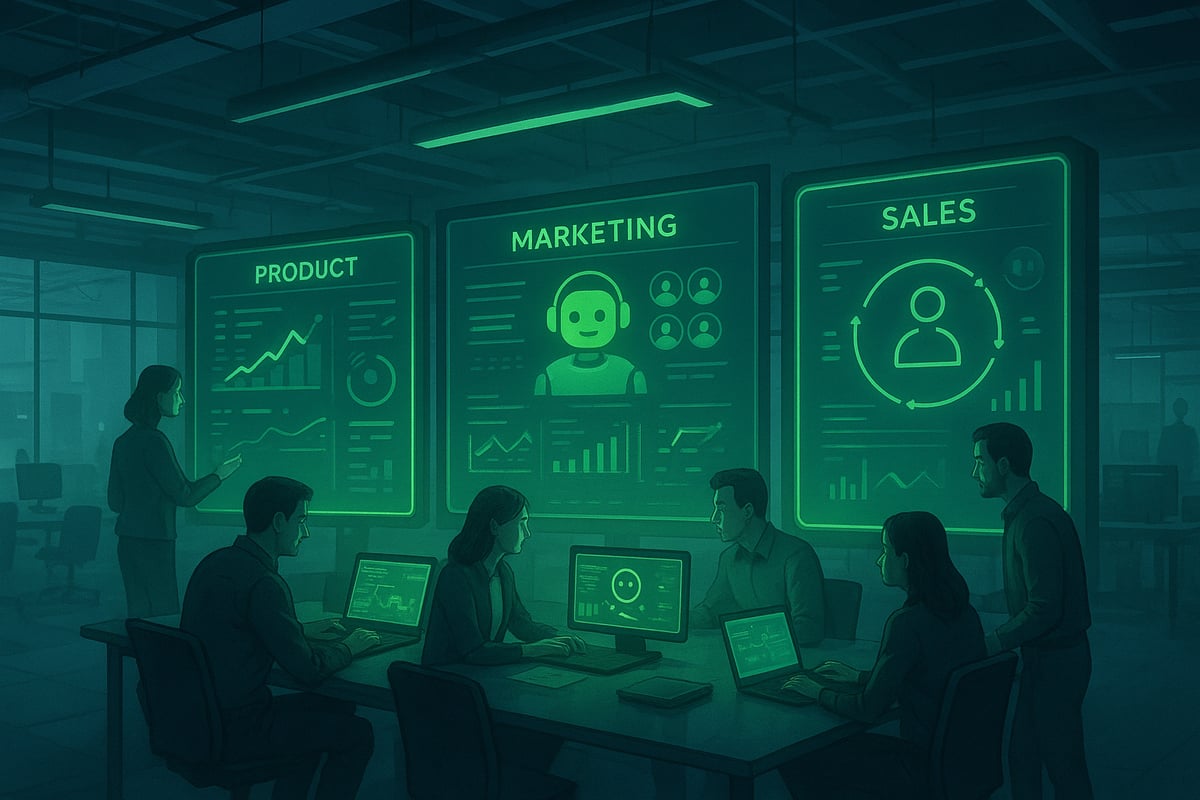
Step 1: Defining Product-Market Fit and Go-to-Market Strategy
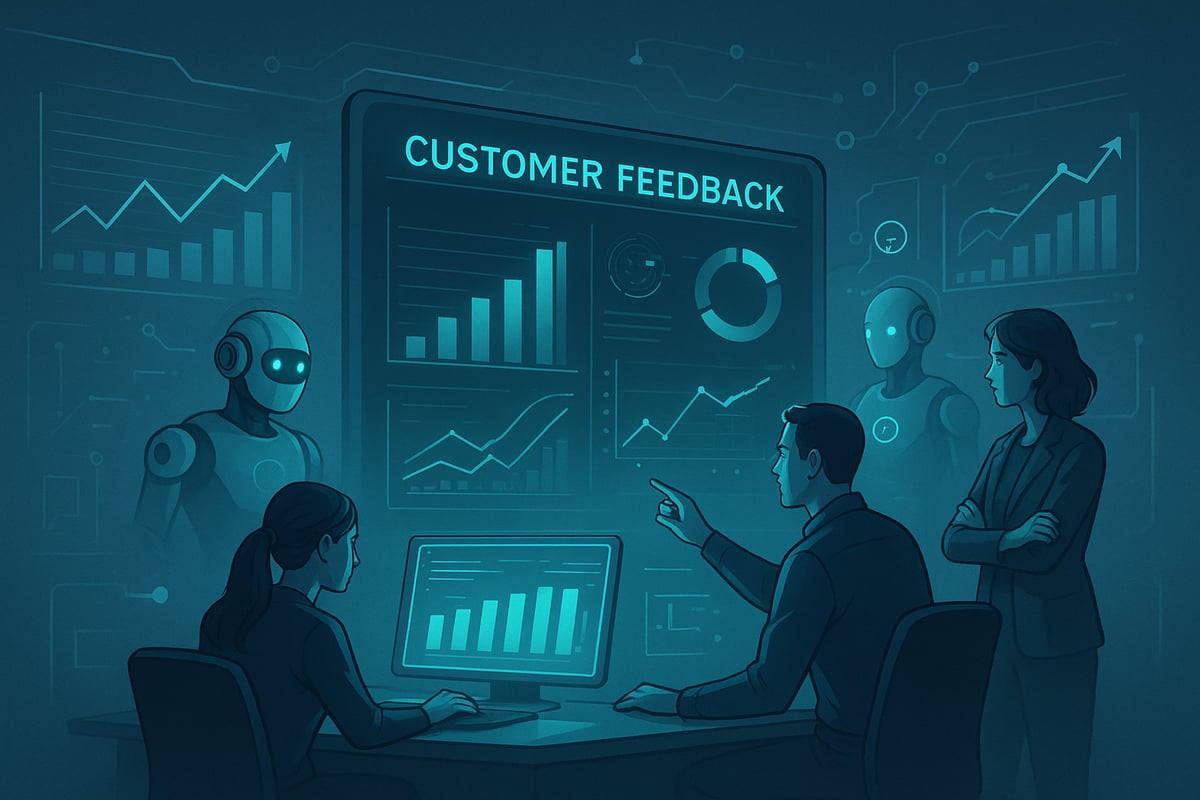
Understanding Product-Market Fit in 2025
Product-market fit is the foundation for the growth of a product in today's B2B SaaS world. In 2025, it means more than customer satisfaction—it requires matching evolving buyer needs with real, measurable outcomes.
Key metrics include:
- Net Promoter Score (NPS)
- Churn rate
- Retention rates
Modern SaaS startups often pivot features based on usage analytics. AI now helps identify untapped segments and emerging opportunities. Blending qualitative feedback with data is essential. For more, see Product-market strategy essentials.
Crafting a Data-Driven Go-to-Market Strategy
Driving the growth of a product demands uniting product, marketing, and sales into a seamless growth function. Start by mapping the buyer journey and pinpointing every crucial touchpoint.
Agentic AI can segment audiences dynamically and personalize outreach at scale. Imagine using an AI-powered GTM dashboard for real-time pipeline tracking. Cross-functional teams must share KPIs and collaborate closely to create measurable impact.
Positioning and Differentiation
Standing out in the enterprise SaaS market means crafting a compelling value proposition. Competitive intelligence informs messaging, ensuring you address what matters most to buyers.
One SaaS firm recently repositioned its offering to meet fast-evolving compliance needs. Storytelling and authentic customer case studies bring your differentiation to life, helping you connect with prospects on a deeper level.
Step 2: Leveraging AI and Agentic Automation for Scalable Growth
The landscape for the growth of a product is being redefined by Agentic AI and automation. Imagine a SaaS company where intelligent agents not only onboard users but also anticipate their needs, recommend features, and even guide upsell conversations without human intervention. This is no longer a vision of the future—it’s happening now.
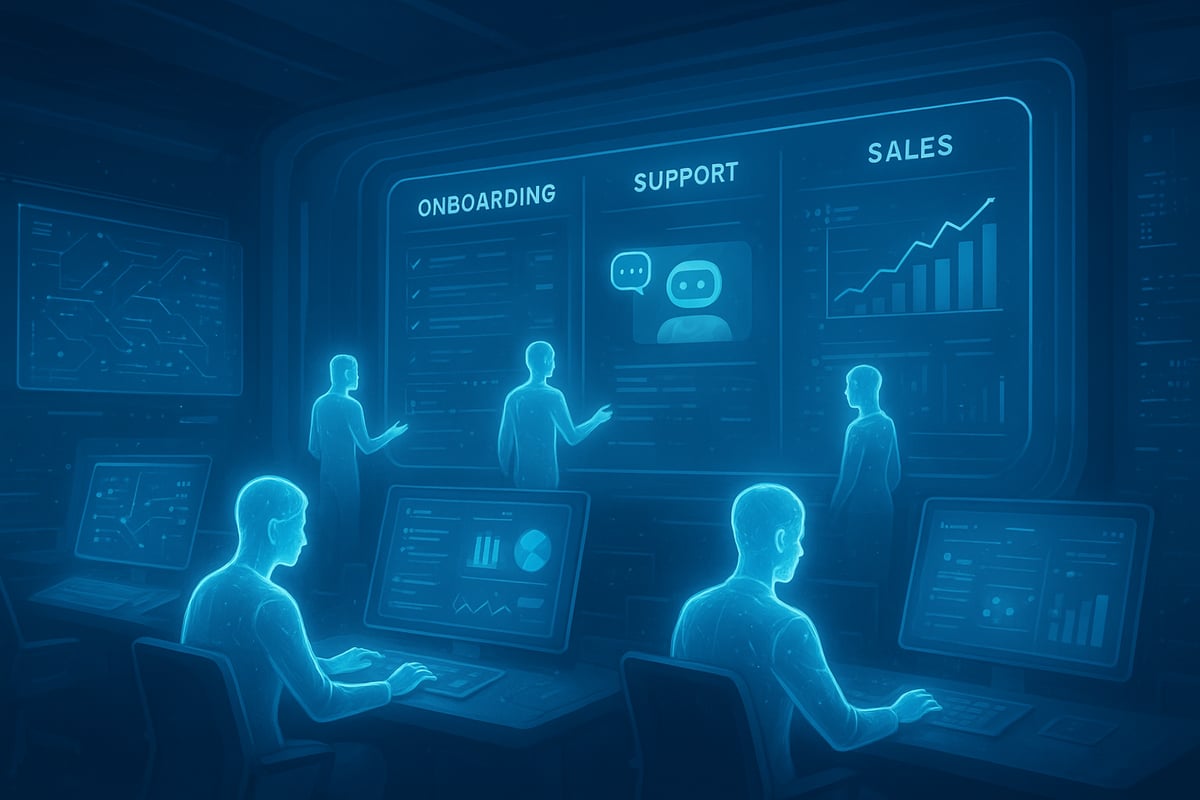
Integrating Agentic AI Across the Product Lifecycle
Agentic Automation is revolutionizing SaaS by embedding intelligent agents throughout the customer journey. For the growth of a product, this means onboarding becomes frictionless—AI guides new users step by step, answers questions instantly, and personalizes feature recommendations.
Consider a SaaS platform where AI agents autonomously handle support tickets, monitor user activity, and trigger targeted upsell or cross-sell messages at the right moment. The result is faster time-to-value and higher satisfaction, as every customer touchpoint is optimized by data-driven automation.
- Automated onboarding flows
- Instant support and knowledge sharing
- Proactive feature adoption prompts
This seamless experience accelerates the growth of a product by increasing retention and driving expansion within existing accounts.
Data-Driven Personalization and Revenue Operations
AI is now at the heart of revenue operations, turning raw data into actionable insights. For B2B teams, this means every interaction is tailored—dynamic segmentation adjusts outreach based on real-time behavior, while predictive lead scoring focuses sales on the most promising opportunities.
According to AI-driven B2B sales trends 2025, companies leveraging these tools see measurable improvements in pipeline velocity and ARR impact. For the growth of a product, this translates into more qualified leads and a higher close rate, all orchestrated by intelligent systems.
- Real-time analytics for pipeline forecasting
- Personalized campaigns at every funnel stage
- Sales enablement powered by AI insights
Scaling with AI-Enabled Feedback Loops
Continuous improvement is essential for lasting success. Agentic AI enables SaaS firms to collect, analyze, and act on customer feedback at scale. Automated A/B testing pinpoints which features resonate most, while sentiment analysis highlights areas for refinement.
For example, a product team might deploy AI to monitor user comments, prioritize feature requests, and test interface changes in real time. These feedback loops ensure that the growth of a product is always aligned with evolving customer needs, fueling iteration and market leadership.
- Automated customer sentiment analysis
- Intelligent feature prioritization
- Agile responses to market signals
Step 3: Aligning Product, Marketing, and Sales for Unified Growth
In the hyper-competitive world of B2B SaaS, the growth of a product hinges on one crucial factor: alignment. When product, marketing, and sales teams operate as a unified force, they turn fragmented efforts into a powerful growth engine. This alignment is not just a buzzword; it is a strategic mandate for any company aiming to drive measurable outcomes at scale.
Breaking Down Silos: Building a Unified Growth Function
For many SaaS companies, breaking down departmental silos is the first step in mastering the growth of a product. True alignment starts with shared goals, such as pipeline contribution and ARR, and extends to transparent metrics everyone can access.
Teams are finding success by holding weekly growth syncs, where product managers, marketers, and sales leaders collaborate on pressing priorities. Operational dashboards keep everyone accountable and highlight opportunities for Agentic AI to automate repetitive tasks, freeing teams to focus on strategic growth.
- Weekly cross-team meetings for transparency
- Unified KPIs tracked in real time
- AI-driven insights to surface growth blockers
This collaborative approach ensures that every function contributes directly to the growth of a product, creating a culture of accountability and agility.
Execution Frameworks and Playbooks
Consistent execution requires more than intention—it demands frameworks and playbooks that teams can rely on. Leading SaaS organizations document repeatable go-to-market processes, ensuring everyone knows how to respond to shifting buyer needs.
Sales enablement playbooks tailored to each persona empower teams to deliver relevant, timely value. Data is used to refine these frameworks, allowing for continual improvement as the market evolves.
- Playbooks for onboarding, sales, and marketing
- Data-driven feedback loops to adjust tactics
- Clear ownership of each stage in the funnel
GTM Consult: Go-to-Market Alignment Expertise
GTM Consult partners with SaaS firms to transform alignment into measurable business growth. Their experts have helped clients achieve double-digit pipeline growth and higher lead conversion by unifying product, marketing, and sales under a single strategy.

Through interim leadership, custom playbook development, and operational transformation, GTM Consult empowers teams to master the growth of a product. Real-world case studies show the impact: stronger pipeline, faster execution, and a culture built for scale.
Step 4: Building a Repeatable, Scalable Growth Engine
Establishing a repeatable, scalable growth engine is where the growth of a product transforms from early-stage momentum into sustainable, enterprise-ready performance. In 2025, B2B SaaS teams succeed by designing for scale, measuring what matters, and never standing still.
Designing for Scalability and Enterprise Readiness
To ensure the growth of a product is not limited by organizational bottlenecks, SaaS leaders architect for scale from day one. This means:
- Building modular systems that adapt as customer needs evolve
- Investing in robust enablement for smooth transitions from SMB to enterprise
- Prioritizing compliance, security, and data integrity at every stage
Companies crossing the enterprise chasm often shift from product-led to sales-led motions, leveraging frameworks like those in Crossing the enterprise chasm to sustain momentum.
Measuring Success: KPIs and Growth Metrics
Measuring the growth of a product requires precision. Focus on these metrics to drive accountability and transparency:
| KPI | Why It Matters |
|---|---|
| Pipeline Contribution | Fuels revenue growth |
| ARR | Tracks recurring value |
| CAC | Ensures efficiency |
| LTV | Measures long-term ROI |
AI-driven analytics simplify reporting, offering real-time visibility for product, marketing, and sales alignment.
Continuous Improvement and Market Expansion
A repeatable engine thrives on continuous improvement. Agile teams rigorously test new features, learn fast, and iterate based on real customer feedback. Expansion into new verticals or regions, like launching in the DACH or US markets, requires tailored go-to-market strategies and operational readiness.
For actionable strategies on scaling product adoption and entering new markets, explore market growth best practices. This ensures the growth of a product remains dynamic, resilient, and primed for the next opportunity.
You’ve just seen how the smartest SaaS teams in 2025 aren’t leaving growth to luck—they’re blending AI, sharp strategy, and a unified approach to outpace the competition. Maybe you’re wondering how your own product could leap from early traction to repeatable, enterprise-level growth. The truth is, every founder’s journey is unique, but you don’t have to figure it out alone. I’ve worked with founders who felt overwhelmed by siloed KPIs and shifting markets, then watched them transform with the right frameworks and actionable insights. Ready to see what’s possible for your team? Book Your Personal Intro Call and let’s write your next growth chapter together.

Latest From
The Blog
Go To Market Strategy Consulting Guide For 2025 Success

Go To Market Strategy McKinsey Guide For Success 2025

Crossing the Enterprise Chasm: A Practical Guide to Sales-Led Growth (SLG)


Let's Build The Future Together



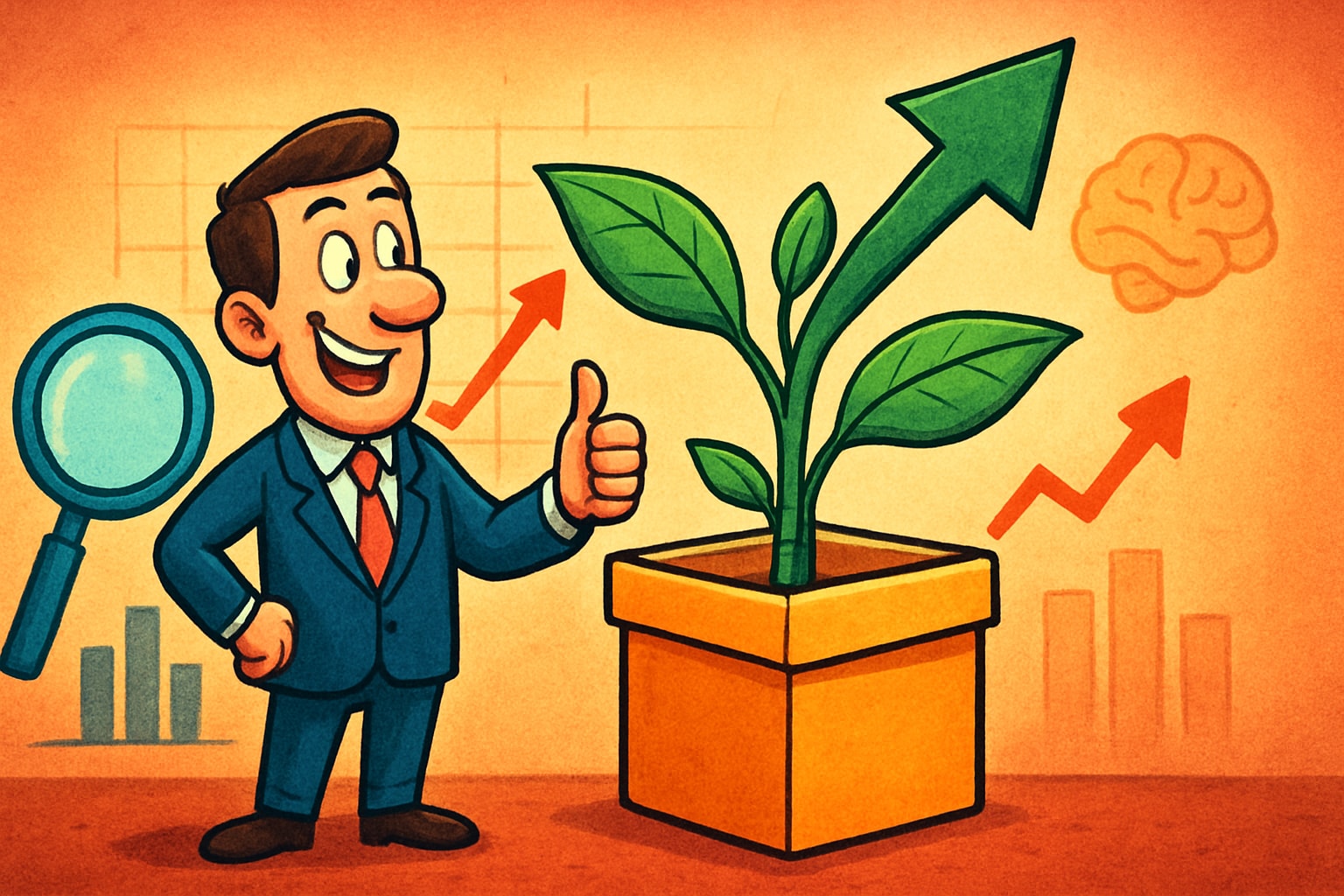
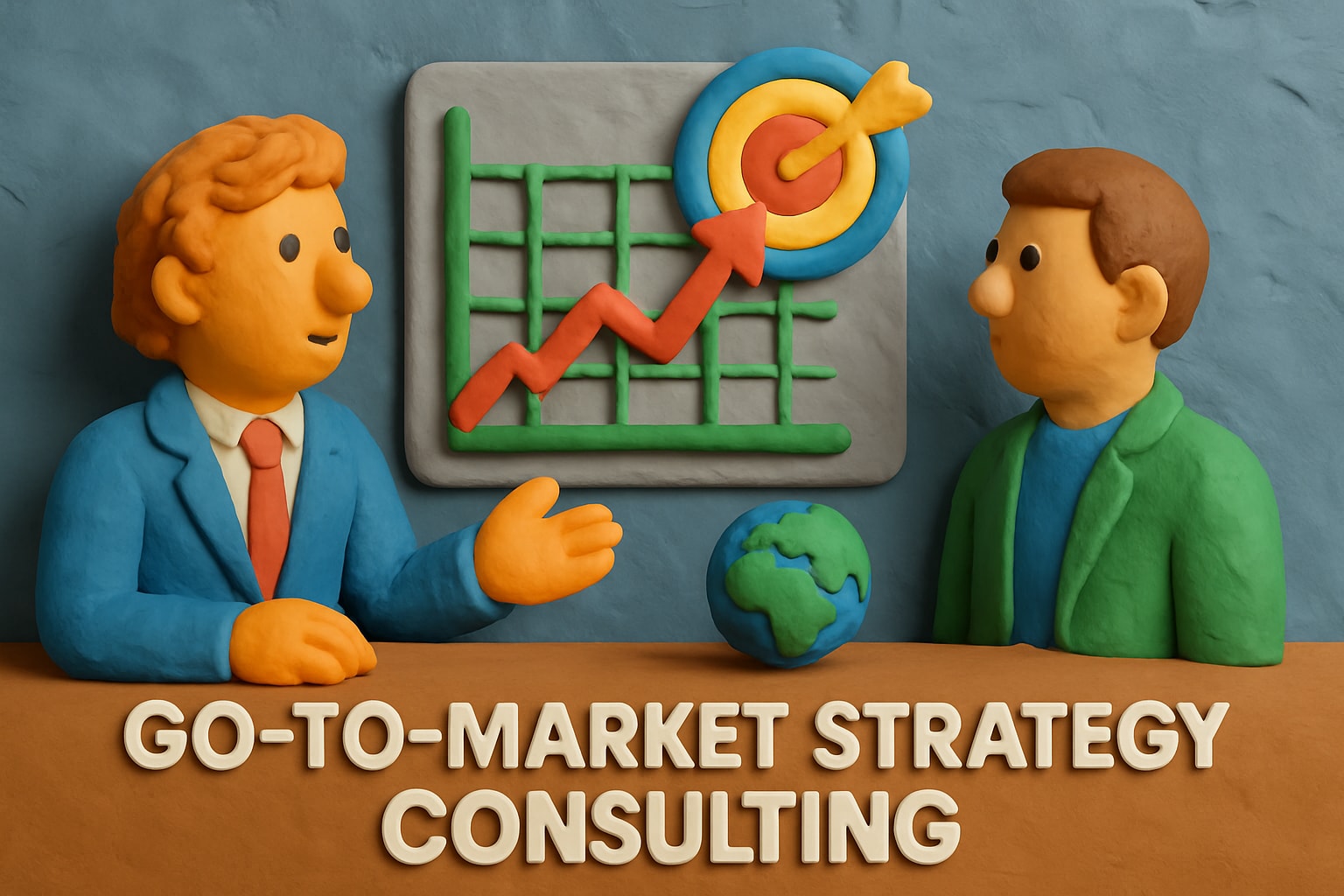
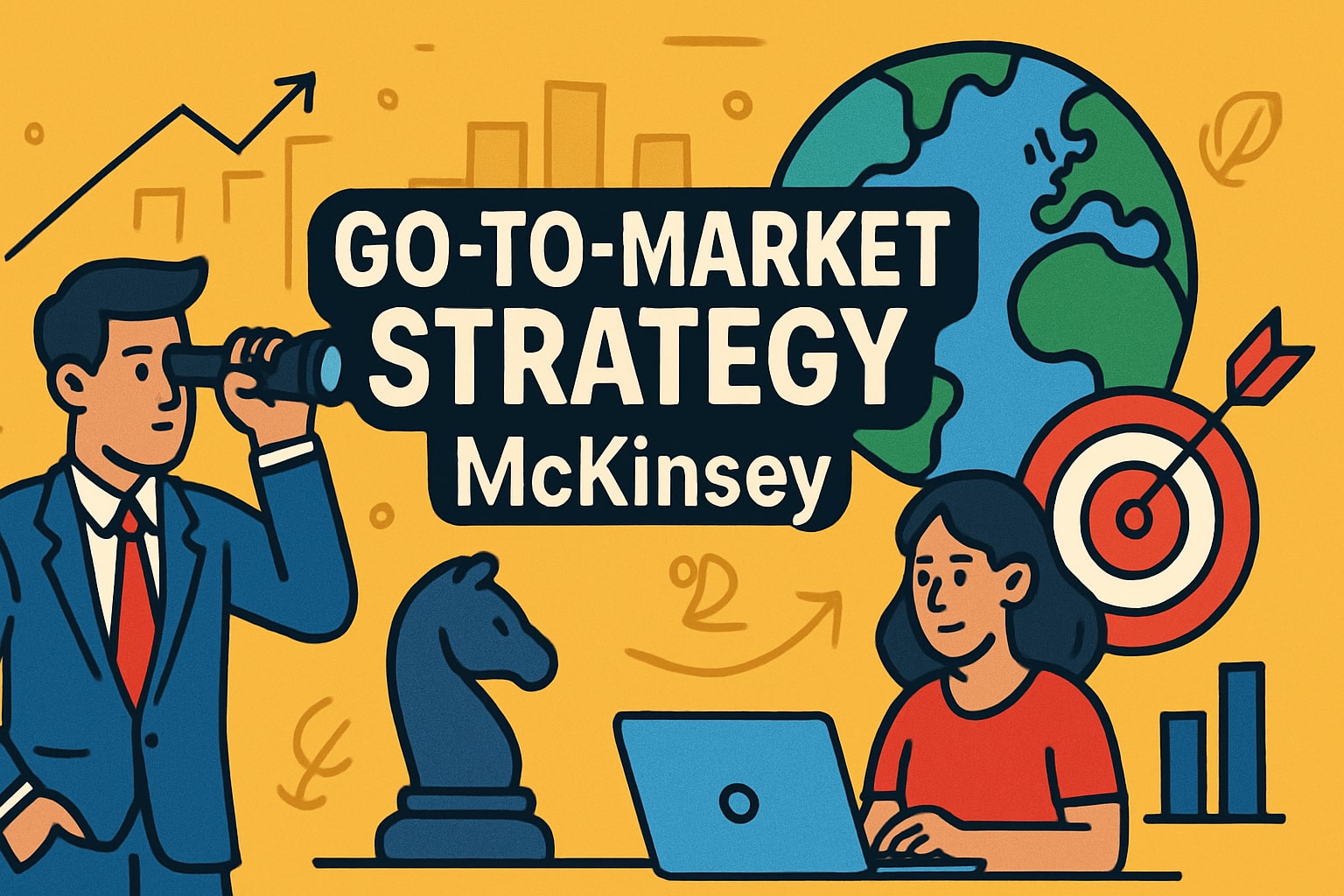
.jpg)